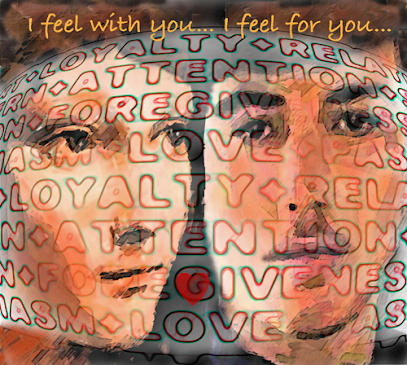Attention, Men: Books
Are Sexy!
A man I know once told me he planned to read all of Jane Austen’s novels in one summer. Initially, I suspected he was merely pretending to appreciate what women like, as some kind of feminist performance. However, it became clear he was genuinely eager to read “Northanger Abbey.” This personal anecdote starkly contrasts with the broader trend: men are reading significantly less fiction, while women dominate fiction sales, accounting for 80 percent. As David J. Morris noted in The New York Times, young men appear to have regressed educationally, emotionally, and culturally, a decline that reflects unsettling social patterns.
The disparity in men’s reading habits makes me melancholy, especially since a man distracted by his phone hardly holds allure today, whereas a man who reads a book has become something rare and even a fantasy figure, illustrated by the popular Instagram account “Hot Dudes Reading.” Some of my most enchanting interactions with men have centered on literature—Mike Nichols once surprised me by declaring Edith Wharton’s “The House of Mirth” his favorite novel, a book I found deeply insightful about political shame spirals. Similarly, when I interviewed Tom Stoppard in Dorset, he eschewed digital devices, preferring to write with a finely crafted Caran d’Ache fountain pen, surrounded by first editions of Jane Austen and Dickens, a testament to a literary life lived richly and analog.
This decline in literary engagement among men is troubling but perhaps not surprising, given cultural shifts since the 1980s. Richard Babcock, a novelist and former editor, suggested that the era’s fixation on money and material success contributed to a false notion among men that novels offer little practical value. With education increasingly emphasizing math and science—tracks viewed as gateways to lucrative careers—the humanities, including novels that broaden horizons and discipline the mind, have been marginalized. Susan Sontag famously described fiction as an instrument that “enlarges your sympathies” and prevents you from becoming emotionally narrow, a capacity ever more crucial as devices consume our attention.
Yet, Babcock cautioned against some of the rhetoric lamenting male reading habits, pointing out that many men, including his circle of friends, read novels eagerly and revisit classics like “Anna Karenina” and “Middlemarch.” Indeed, there remain thoughtful male authors crafting profound works that defy the stereotype of male disengagement from fiction. My own studies in English literature at Columbia underscored the enduring necessity of the humanities, especially in an age dominated by technology and artificial intelligence, where novels like “Frankenstein” or “Paradise Lost” illuminate the hubris of powerful tech creators birthing new worlds.
A touching invitation I received from Paul Bergman, a New Yorker and lawyer, illustrates how men’s literary engagement endures in some circles; for 45 years, his all-male book club from the Brooklyn U.S. attorney’s office has shared reflections on novels such as “Middlemarch.” This continuity offers a hopeful counterpoint to the general trends, underscoring that the decline in male reading, while real and quantifiable, is not absolute and that literature remains a vital site for men to rediscover richer, more empathetic selves through the transformative power of fiction.
WORDS TO BE NOTED-
-
Anecdote – A short, interesting or amusing story about a real incident or person.
-
Apparent – Clearly visible or understood; obvious.
-
Disparity – A great difference or inequality between two or more things.
-
Enchanting – Delightfully charming or captivating.
-
Eschewed – Deliberately avoided or abstained from.
-
Fixation – An obsessive interest in or focus on something.
-
Hubris – Excessive pride or self-confidence, often leading to downfall.
-
Lamenting – Expressing grief, sorrow, or regret about something.
-
Literary – Related to literature or writing and books.
-
Marginalized – Treated as insignificant or peripheral, pushed to the edge of importance.
-
Narcissism – Excessive self-love or admiration of oneself.
-
Nostalgic – Feeling a sentimental longing for the past.
-
Profound – Very deep or intense in meaning or effect.
-
Regrettable – Worth feeling sorry about; unfortunate.
-
Sympathies – Feelings of pity and compassion towards someone else’s suffering or situation.
PARA SUMMARY -
The passage reflects on the notable decline in men’s engagement with fiction, highlighting a man’s genuine enthusiasm for Jane Austen as an unexpected but touching exception. It discusses the broader cultural trend where women dominate fiction readership while young men show educational and emotional regression. The author laments this gap, emphasizing how romantic and captivating literary discussions with men have become rare yet cherished encounters. Experts suggest that the rise of materialism since the 1980s and an education system focusing on STEM subjects have marginalized the humanities, undermining the intellectual and empathetic benefits of novels. Despite this, the passage notes that many men continue to read deeply, often revisiting classics and appreciating literature’s capacity to enrich perspective. The enduring existence of male book clubs and thoughtful male writers counters the narrative of complete male literary disengagement, underscoring fiction’s vital role in cultivating compassion and self-awareness.
SOURCE- NY TIMES
WORDS COUNT- 500
F.K SCORE- 14




Comments
Post a Comment